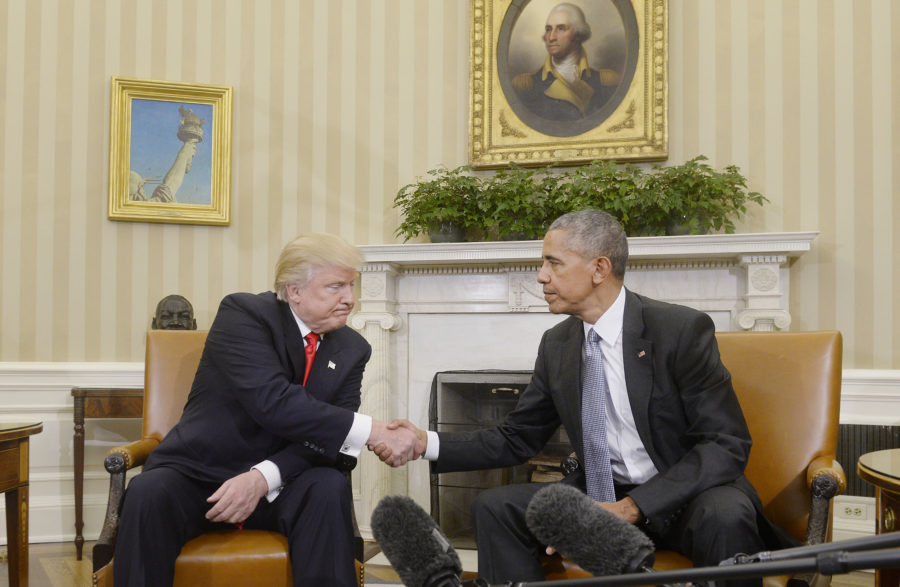Last week, the Internet received what may become a crippling blow to many people. On Jan. 14, a federal appeals court decided against the net neutrality laws proposed by the Federal Communication Commission. For those not too familiar with the Internet past Twitter and YouTube, this decision means that Internet service providers can pick and choose which websites will be the fastest for their users. If a website like YouTube wants to pay for faster speeds from one of the ISPs, then it gets the priority.
Faster Internet speeds for your favorite popular websites might sound great. And in the short term, sure, everyone likes a faster Internet. Additionally, your Internet usage bill would logically be lower, as larger corporations would be paying money for the faster speeds, offsetting the cost.
The long term, however, is where the Internet, businesses and consumers will feel the damage. Allowing big-name websites to monopolize Internet speeds means that smaller websites will suffer. As the underdogs, they won’t be able to compete on a playing field that’s stacked to favor the already-winning teams. This means that small website start-ups — like, oh, Twitter and Facebook back in the day — might be shoved aside and never be allowed to grow. Small businesses with websites will also suffer, as they won’t have the financial backing to get the same sort of speeds and reach as chain stores.
In short, the Internet will become exactly like our political and economic systems — whichever big name has the most money wins.
Of course, some key figures of the net neutrality discussion, such as Tim Wu, the professor who originally coined the phrase, have pointed out that the net is already fairly selective. The most significant example is Flash websites, which aren’t supported by Apple products for various reasons. That’s just become a fact many people have learned to live with. But it can be annoying. Sometimes even frustrating or detrimental. Just imagine that happening on every piece of Internet-accessible technology for any number of websites. The problem becomes even worse.
Another blow comes in the form of potential censorship. Without some sort of net neutrality regulation, ISPs have nothing to stop them from limiting customers’ access to other sites. Maybe one of your favorite sites belongs to your ISP’s competitor, and your current ISP wants you to start using its own version of that site. Legally, your ISP can block you from accessing the competition to force you to get on its website instead. It’s better for business that way, after all.
Even if you’ve never heard the term before, you’ve likely seen it. The net neutrality discussion and what powers an ISP has in regulating its customers’ access to websites has been floating around in plain view. Late last year, a petition made its rounds on Facebook. You may have seen it. It pleaded with people to sign to encourage Internet service providers to systematically block porn websites by default. Any customers who wanted access to the sites only had to contact their ISP. The reasoning behind it was to protect kids and people who don’t want to see that stuff.
Yeah, OK, we can see that reasoning. On the surface, the petition made some degree of sense to a vast majority of the population, mainly those who stick to the happy, clean surface of the Internet, like basic social media websites and Netflix. We don’t want kids accidentally pulling up pop-ups of super inappropriately dressed people.
For others, though, that petition was a blaring alarm. Almost immediately upon it surfacing, bloggers rushed to head it off, writing lengthy, detailed posts urging their friends and family to stay as far away from that petition as possible and spread the word: Don’t sign. Were these people actively interested in porn? Nope. The majority of those bloggers couldn’t have cared less whether the focus was porn or animal abuse websites. Instead, they were panicked because so many people were actively supporting a method to stop net neutrality, thereby limiting the spread of ideas, thereby censoring the Internet.
Net neutrality means that all ideas can start on a playing field with some basic equalizers. It means that the good ideas willing to stick it out can eventually make it to the top to compete with the big-timers. It means a certain type of freedom that seems to be lessening more and more in other parts of society. Yes, with freedom, you might have to put up with a lot of unpleasant things. But at least you get the option to choose.














